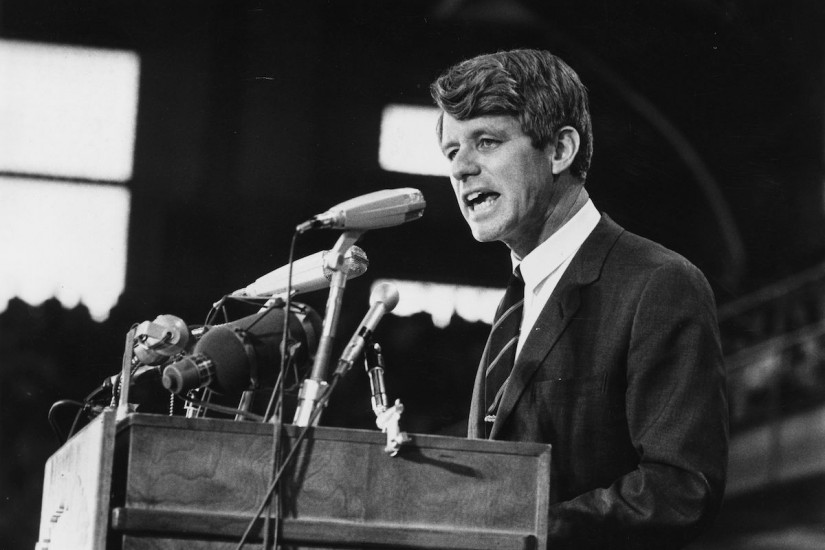In the end, Arthur Schlesinger had come to know Robert Kennedy better than he’d ever known John. And sitting down with his journals three days after Bobby’s death, Schlesinger acknowledged that, to his own surprise, he’d grown closer to him, too. Hero-worshipper though he may have been, he retained—or now reclaimed—a historian’s powers of observation, and judgment. He dissected the differences between the two brothers as only he could have done.
JFK, one sensed, was always a skeptic and an ironist; he had understood the complexity of things from birth. RFK began as a true believer; he acquired his sense of the complexity of things from hard experience. He remained a true believer to the end but at a far deeper level; he had long since shucked away the eternal criteria and the received simplifications and got down as far as one can in politics to the human meaning of things. JFK attacked conditions because they seemed irrational, RFK because they seemed hateful. JFK was a man of cerebration; Bobby was very bright and reflective, but he was a man of commitment. If JFK saw people living in squalor, it seemed to him totally unreasonable and awful, but he saw it all, as FDR would have done, from the outside. RFK had an astonishing capacity to identify himself with the casualties and victims of our society. When he went among them, these were his children, his scraps of food, his hovels. JFK was urbane, imperturbably, always in control, invulnerable, it seemed, to everything, except the murderer’s bullet. RFK was far more vulnerable. One wanted to protect him; one never felt that Jack needed protection.
In Bobby’s case the contrast between the myth and the man could not have been greater. He was supposed to be hard, ruthless, unfeeling, unyielding, a grudge-bearer, a hater. In fact, he was an exceptionally gentle and considerate man, the most bluntly honest man I have ever encountered in politics, a profoundly idealistic man and an extremely funny man. JFK had much better manners. RFK was often diffident and had no small talk. He would do much better at Resurrection City than at the Metropolitan Club.
Schlesinger’s final comparison between the two was his most startling. “It will be a long time before this nation is as nobly led as it has been in these last three years,” he had written on November 22, 1963. But only four and a half years later, by the time Bobby Kennedy walked into the pantry of the Ambassador Hotel, Schlesinger had been prepared to say that time was already nigh. “What kind of a President would he have made?” he asked. “I think very likely a greater one than JFK. He was more radical than JFK; he understood better the problems of the excluded groups; and he would have been coming along in a time more propitious for radical action.”
“We have now murdered the three men who more than any other incarnated the idealism of America in our time,” he concluded. Never again, he vowed, would he let himself become so attached to a politician, and never did he.
